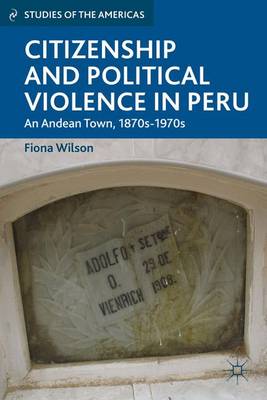Studies of the Americas
1 total work
Citizenship and Political Violence in Peru recounts the hidden history of how local processes of citizen formation in an Andean were persistently overruled from the nineteenth century on, thereby perpetuating antagonism toward the Peruvian state and political centralism. The analysis points to the importance of two long-term processes. One reflected the memory of earlier municipal citizenship and the possibilities of political change; the other stemmed from the outlawing of political opposition which pushed radical dissent underground and into extremism, creating the conditions for the political violence in the 1980s. The book builds on the detailed study of a unique municipal archive in Tarma and ethnographic research from both before and after the violence.
